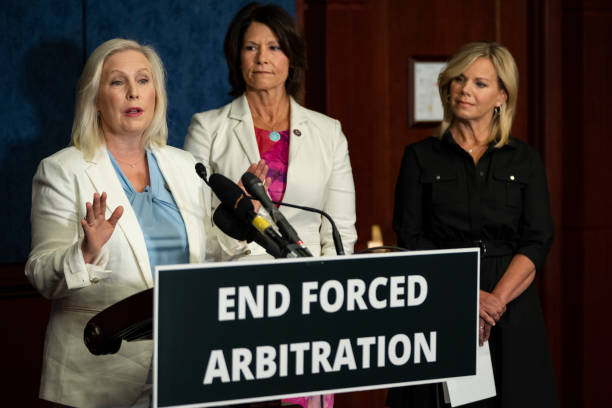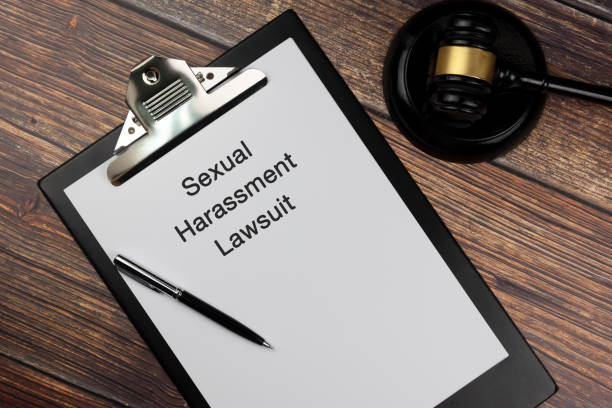
Lodging your sexual harassment claim late
Sexual harassment claim time limits help ensure that a claim is made within a reasonable amount of time after the harassment occurred. While it’s not usual that a late lodgment of a sexual harassment claim will be accepted, there are sometimes expectations made. As a general rule the older the claim the more difficult it is to get accepted. However many claims succeed. Also many employers want to settle regardless of the age of the complaint. They know they are in trouble and just want to deal with the issue. In some instances we have had employers state they were surprised the claim wasn’t bought forward earlier or they have been waiting for it.
In this article, we explain all you need to know about sexual harassment claim time limits. We also share a shocking case of sexual harassment involving one of Victoria’s highest-ranking female firefighters. And we explain why her sexual harassment claim – lodged some years after the alleged harassment – was still accepted by the Victorian Civil and Administrative Tribunal.
Why are there sexual harassment time limits?
The reason there are sexual harassment time limits is because the longer a claim is delayed, the more witness testimony becomes unreliable. Namely, because the memories of witnesses fade or become distorted. Also, key witnesses may no longer be able to provide testimony (due to death or relocation). And key evidence or records may become lost with time. The employer will argue they have been prejudiced.
What is the sexual harassment claim time limit?
If you are making an application through the Australian Human Rights Commission (under the federal Sex Discrimination Act 1984), the sexual harassment claim time limit is 24 months. That is, you must make a claim within 24 months of the alleged sexual harassment occurring. The federal sexual harassment claim time limit was previously set at six months. However, this was extended in 2021 following the recommendations of the Respect@Work inquiry.
If you are making an application via a state body, the sexual harassment claim time limit is generally 12 months. For example, if you make a sexual harassment claim via the Victorian Civil and Administrative Tribunal (under the Victorian Equal Opportunity Act 2010), you must do so within twelve months of the alleged harassment. The same sexual harassment claim time limit also applies for applications made under the NSW Anti-Discrimination Act.

Are sexual harassment claim time limits relaxed in certain circumstances?
If you lodge your application outside of the sexual harassment claim time limit, it falls upon the discretion of the state or federal body to allow your claim to proceed. You must, however, have a good reason for the late lodgement of your sexual harassment claim.
This was certainly the case in a recent sexual harassment claim made by Donna Wheatley, one of Victoria’s highest-ranking firefighters. The claim – Wheatley v Fire Rescue Victoria [2023] – was accepted by the Victorian Civil and Administrative Tribunal despite the sexual harassment dating back almost 25 years.
Female firefighter’s sexual harassment claim accepted despite late lodgement
Ms Wheatley is seeking damages for the “serious and sustained harassment and abuse” she suffered during her almost 25-year career at Fire Rescue Victoria (FRV). Not only did she endure sexual harassment, Ms Wheatley also observed others suffering the same.
She claims that her sexual harassment complaints were ignored or downplayed by senior officers at FRV. Some even encouraged her not to complain. Ms Wheatley’s allegations come after the Victorian Human Rights Commission published a report that revealed “everyday sexism” and a “hyper-masculine culture” at the FRV. The report also revealed that female employees faced difficulty making sexual harassment complaints. And that those who did experienced reprisals.

“You have to accept you’ll be sexually harassed:”
Employee endures significant sexual harassment
To understand why Ms Wheatley was afforded an exception for the sexual harassment claim time limit, it’s important to understand the nature of her claim. Ms Wheatley commenced working for FRV (then the Metropolitan Fire Brigade) in a contracted admin role in 1998. And almost immediately, the culture of sexual harassment was apparent. She claims that she was “first exposed to improper sexualised conduct in the workplace in 1998.”
It quickly became clear that a culture of sexual harassment was systemically ingrained at FRV. In fact, shortly after taking up her role, Ms Wheatley was told by a senior officer that she had to “accept you’ll be sexually harassed, that’s just how it will be.” When Ms Wheatley became a permanent employee in 2003, there were only around 15 females out of a total of 1,700 firefighters at FRV. And it was then that she began to experience far more severe sexual harassment.
In her sexual harassment claim, Ms Wheatley says that she experienced “serious psychological injury” due to the trauma she endured. This included:
- In Ms Wheatley’s first week of training, her instructor told her class that he would need a “wank sock.”
- A senior officer aggressively pushing his face onto hers and kissing her, as other firefighters laughed.
- While riding in a fire engine, her male co-workers would continually use offensive language to describe women they passed by. For instance, they would describe Collins St in Melbourne’s CBD as “c**t canyon.”
- At the FRV Christmas party in 2005, Ms Wheatley was told by a senior officer that they intended to have sex with her.
- At the 2006 Christmas party, a fellow firefighter sexually assaulted her by grabbing her breasts.
- At the 2011 Christmas party, a senior officer asked Ms Wheatley to have sex with her. And when she refused and walked off, grabbed her.
- At a 2014 work social event, an FRV Commander groped her buttocks.
- Witnessing a colleague flash his genitals. This colleague also regularly called females “bitches.” He didn’t face any disciplinary action, but was simply moved to another station.
- Regularly witnessed pornography on display at fire stations. On one occasion, her colleagues brought a sex doll to a retirement party. This behaviour was later excused by a senior officer as “a bit of fun.”
In addition to sexual harassment, Ms Wheatley also experienced regular gender discrimination. This included being:
- Regularly called a “bitch” or addressed as “sir” when she moved into more senior positions at FRV.
- Forced to change her locker room because a superior officer didn’t want a woman in there.

Employer says Ms Wheatley exceeded sexual harassment claim time limit
In September 2021, Ms Wheatley made a sexual harassment claim with the Victorian Civil and Administrative Tribunal. This was made under the Equal Opportunity Act 2010 (VIC). She alleges that FRV is vicariously liable as an employer for the sexual harassment she endured over almost 25 years. Much of Ms Wheatley’s alleged sexual harassment took place well before the Victorian sexual harassment claim time limit of 12 months. Therefore, FRV sought to have the Victorian Civil and Administrative Tribunal dismiss her allegations relating to sexual harassment that took place prior to 2015.
FRV cited s75(1)(b) and s76 of the VCAT Act, which allows the tribunal to dismiss all or part of a claim if it has abused the claim process or was lodged after an inexcusable delay. FRV also cited clause 18 of schedule 1 of the VCAT Act. Under this clause, the tribunal can dismiss claims concerning sexual harassment that occurred more than a year prior to the sexual harassment claim time limit. The FRV sought the dismissal as it believed the earlier instances of sexual harassment would cause “significant prejudice.” This is because witnesses would be unavailable. Also, the time delay would cause a lack of objective evidence.
Victorian Civil and Administrative Tribunal relaxes sexual harassment claim time limit
Ms Wheatley argued that she hadn’t made the claim earlier and within the sexual harassment claim time limit as she feared it could jeopardize her career. She argued that FRV has a “virtual monopoly on the employment of firefighters in Victoria.” Ms Wheatly said that she was “deeply committed” to her career. And she reasonably believed that given there were very few females in firefighting, making a sexual harassment complaint through Victorian Civil and Administrative Tribunal would ruin her career prospects.
This argument was found to be “plausible” by the Victorian Civil and Administrative Tribunal, which therefore provided Ms Wheatley with an exception from the sexual harassment claim time limit. The Tribunal reasoned that her multiple instances of sexual harassment were “interconnected and cumulative.” And therefore, “none . . . should be excluded in the adjudication of them in their entirety.”

A Whole New Approach can help you make a sexual harassment claim
Ms Wheatley’s huge win at the Victorian Civil and Administrative Tribunal shows that state and federal authorities are increasingly listening to victims. They are increasingly recognizing the many challenges that often prevent victims from speaking out. However, exceptions for making an application outside of the sexual harassment claim time limit are rare. It’s therefore imperative that you act fast in making a sexual harassment claim through the appropriate federal or state body.
If you’re unsure where to make a sexual harassment claim, or what to do, A Whole New Approach can help. We have over two decades’ experience helping victims of sexual harassment fight for their rights, justice and seek compensation for their suffering.
Call us today on 1800 333 666 for a free, confidential discussion about your circumstances.













